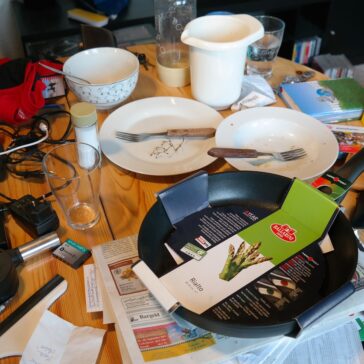I read a post by Mark Manson that said there are 2 approaches to improving yourself-
1) The self-improvement junkie. The junkie has this constant gnawing feeling that there’s still some magic tip or technique or piece of information out there that will create their next big breakthrough (again, both real or imagined). Self-improvement for the junkies becomes a kind of glorified hobby. It’s what they spend all of their money on. It’s what they do with their vacations. It’s where they meet their friends and network.
2) The self-improvement tourists. Other people only come to self-help when shit has really hit the fan. These people use self-help material to fix whatever is bothering them, to get them back on their feet, and then they’re off into the world again.
I’ve read a few self-help books and there was a time that it was all I read. I was a self-improvement junkie. I thought every book or podcast would have the secret to stop my inability to grow up, form relationships, be successful at work, become more ambitious.
I got fed up with them and moved to the tourist stage and now I’m in the “read things that interest me and help me learn things about myself” stage.
Two examples of this are Minimalism – A book called Suffocation led me to The Minimalists website, podcast and their book Everything that Remains. Following reading The Life-Changing Magic of Tidying by Marie Kondo, I think I have a handle on clutter and spending and only buy things that ask Marie would say “Spark joy in my life”.
The other is Introvertism – I watched Susan Cain’s Ted Talk, read her book Quiet – The Power of Introverts in a World That Can’t Stop Talking and took on board much of what she said. You don’t have to be the loudest and most outspoken person in the room to be good at your job. Also, spending time quietly thinking and contemplate is very useful and is where great ideas come from.
Selp help books are changing. Some people see The 4 Hour Work Week by Tim Ferriss as self-help. It’s really a management book, with some lifestyle changes included. It’s a great concept, but Ferriss already had his own business, he just removed himself from it. There’s no magic formula in the book that tells me how to find a niche business market and set up a successful business in the first place. What were self-help books are now classed as Management, Psychology, Business motivation or Training & Coaching books.
A Change in thinking
A big change is that some of the stigma about mental health is being removed. People are much more open about talking about it. The stuff you hear about still tends to come from (already successful people who have that some trauma in their life that has lend to mental health issues or depression.
Focusing just on sports, stars like Dame Kelly Holmes, Dwayne “The Rock” Johnson, Victoria Pendleton, Michael Phelps, Ian Thorpe and Jonny Wilkinson have spoken out. There are some cases that athletes that have focused their whole lives on their sport with huge resources to help and manage their life, then retired, all the support disapperas and understandably have issues.
Currently, active athletes are speaking up to, including athlete David Weir, footballer Danny Rose and basketball players, Kevin Love and DeMar DeRozan. In Love and DeRozan’s cases, these are NBA superstars at the peak of their powers putting future contracts and pay at risk.
Small things to make a start
If you’re bottoming out, even by picking up a book that may help you, you’re on the right track and looking for answers. The book gives you the nudge you need to focus on those areas of your life that need to change. For me, I have discovered that reading a self-help book is in itself a form of procrastination, especially if your reading a book about procrastination! Many times my issue has been feeling stuck and wanting to get unstuck. Here are some things that could help –
If you asked your best friend – Imagine if you went to your best friend with the problem and asked them what their advice would be. What is the answer they would give you? You probably have a pretty good idea of what it would be already.
Gun to your head – To steal a Mark Manson question
“GUN TO YOUR HEAD, IF YOU HAD TO LEAVE THE HOUSE ALL DAY, EVERY DAY, WHERE WOULD YOU GO AND WHAT WOULD YOU DO?”
Write down a few answers and then actually do them.
Recognise procrastination – Whatever the thing that needs to be done is, it feels unpleasant, and we avoid it. We distract ourselves and look for things to improve our mood. Actually, it can be anything just to avoid it, such as my need to wash up and hoover or read a self-help book.
Recognise what these are, notice when you are doing them and stop or reduce them. It can be watching TV, cleaning, social media, web surfing, drinking, eating, more and more reading and research.
Beware writing too many lists – Again, in itself, a form of procrastination, so beware too much list writing and spending too long on it.
Clear manageable steps – Get in shape. Run a marathon. Change jobs. Meet new people. These are big scary goals and you have no idea where to start or how to get there. Break the goal into small manageable steps from how to actually start and the points along the route to get there. A lot of the time for me it is overcoming the inertia of starting. How do you take a step forward towards your goal?
For further thoughts on this topic read Jordan Ring’s post.




